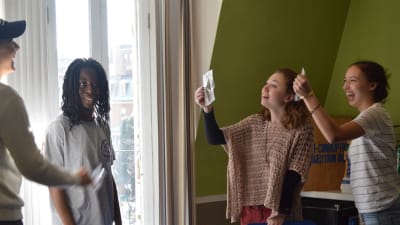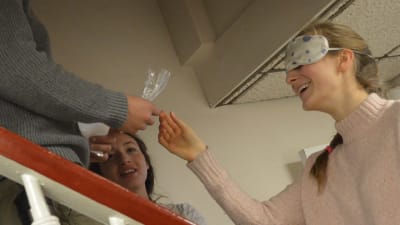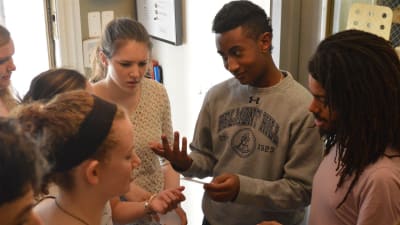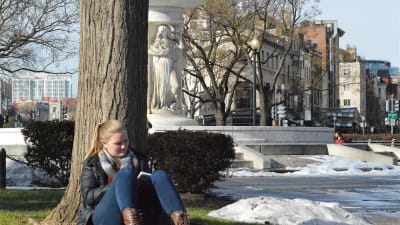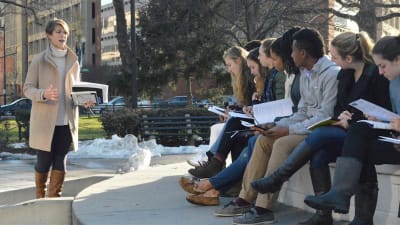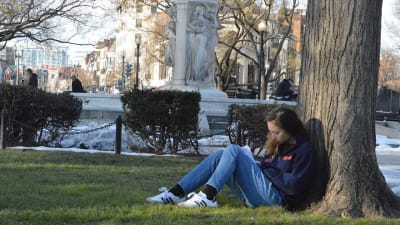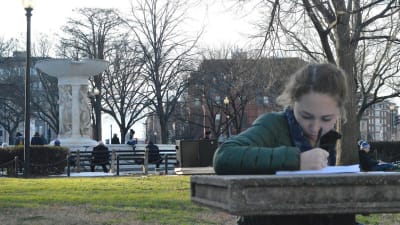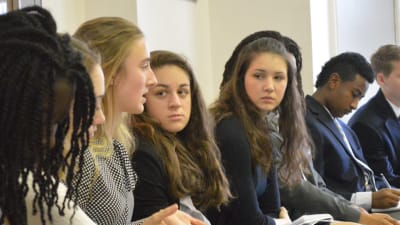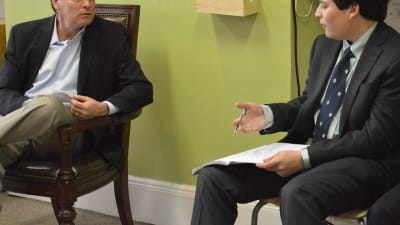Longtime CBS News Journalist is first Spring 2016 Speaker
The first full week of Spring 2016 is already complete!
Our Ethics and Leadership class began with an “Introduction to Ethical Decision Making” case study, which included several SEGL traditions and one of network news’ most experienced journalists. On Monday, the students took on The Infamous Skittles Scenario, a signature SEGL experience. The Scenario is a hands-on “state-of-nature” simulation that has students chasing after plastic bags of candy and reacting with delight–or dismay–at 3×5 custom-made “Chance” cards. It is an entertaining introduction to ethical decision making and brings up countless questions about human nature and the strength of each student’s personal moral code. (What would you do if there were no rules and limited resources? Would you use that gun you found? Help out a suddenly-blind friend? Lie? Join a makeshift band of marauders?)
We then gave the students an introduction to classic Western ethical theory–Aristotle, Kant, and John Stuart Mill. (You can watch a video version of the talk, which we use in our online course, here.) The goal of this lecture is to provide three “classic” tools that each student can place in her ethical toolkit.
On Friday morning we flipped our schedule to be able to meet with veteran CBS News journalist Chip Reid. Reid, whose current title is National Correspondent, was White House Correspondent for nearly three years of the Obama Administration. Reid told war stories–including some actual war stories from being embedded with soldiers at the beginning of the Iraq war–gave some key media literacy advice, and then challenged the students with actual dilemmas he has faced as a journalist. As with most SEGL guest expert sessions, the conversation was off the record, so we can’t share too many details here. But here is one story that, combined with Reid’s behind-the-scenes information, created important learning experiences for our students: VA can’t afford drug for veterans with Hepatitis C. And Reid reflects on another story he shared with the students here.
One brief interchange we can share: when a student asked Reid what advice he could share with students when they think through ethical dilemmas, Reid responded, “Think them through! Because most people don’t.” That simple answer encapsulates a major aspect of SEGL’s pedagogy: we don’t teach students what to think, we teach them how to think. And, for us, how means using your ethical compass. Because, as Reid said, most people don’t.
The formal and informal discussions that followed Reid’s visit were fascinating and raised complicated questions for the students. As the weeks and our case studies continue, our answers to these questions (and many others) will become more nuanced and more complete.
Meanwhile, our first week of traditional academics is also complete. Among other sessions, students had an initial English class journal writing session in Dupont Circle park. The journal-writing is a weekly English assignment and an opportunity to improve both writing and reflection skills. We also gave the students a lecture on cutting-edge brain science about–among other things–the value of praising students for smarts (don’t do it!), the malleability of intelligence (the brain is far more changeable than you think!), listening to music while studying (you won’t do as well on the test!), and looking at screens before bed (it affects your sleep more than you realize!).
This week we investigate the Rwandan genocide. And, of course, the sturm und drang of the New Hampshire primary!
